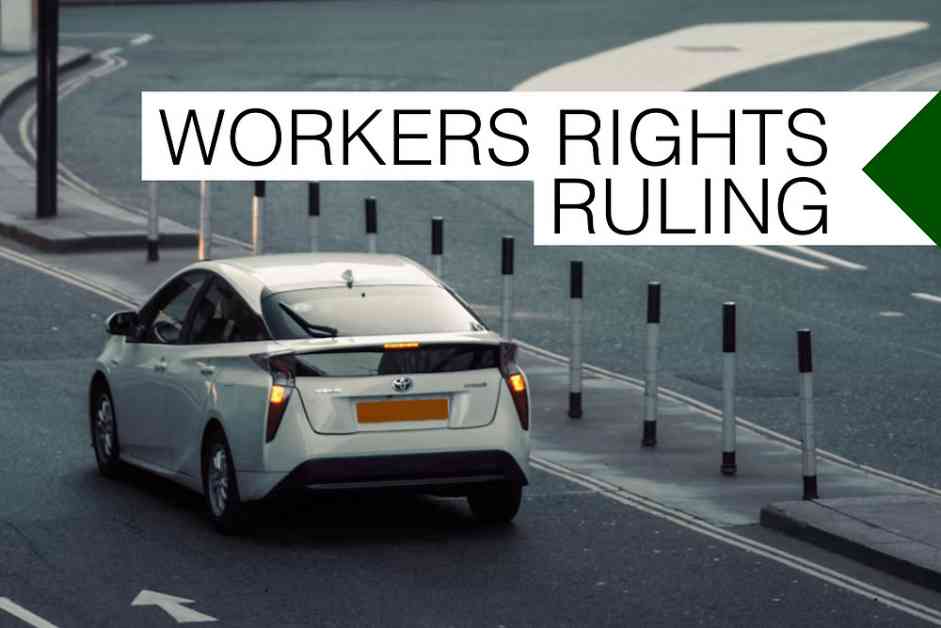A recent ruling against Bolt by an Employment Tribunal has brought attention to the ongoing issues within the UK’s gig economy, especially regarding the rights of minicab drivers who rely on app-based platforms for work. According to James Farrar, Director of Worker Info Exchange, this ruling highlights the systemic problem faced by an estimated 250,000 minicab drivers in the UK, many of whom are from ethnic minorities. These drivers are operating within an employment model that denies them basic rights that would typically be guaranteed in a traditional employment setting.
The tribunal’s decision focuses on the requirement for app-based drivers to be compensated for all the time they spend online with a single app, regardless of whether they are actively driving or waiting for their next passenger. Farrar explains that drivers are essentially at the disposal of the platform while logged in, providing value and availability to the service even when they are not actively transporting passengers. The failure to pay for waiting time has resulted in low driver utilization rates, ranging from 40% to 60% of their logged-in time, which not only impacts drivers personally but also leads to broader issues such as congestion, emissions, and safety risks.
Farrar criticizes app employers for prioritizing responsiveness to passenger demand without considering the costs to drivers. By not compensating drivers for waiting time, gig platforms have become operationally inefficient, leading to various negative externalities. He calls for the government to take action on gig worker rights, especially in terms of recognizing the employment relationship between drivers and platforms like Bolt and Uber. Without intervention, Farrar warns that market dynamics and competition issues will continue to worsen, impacting workers, urban infrastructure, and environmental goals.
Farrar’s comments highlight the frustration felt by worker advocacy groups, who argue that regulatory loopholes benefit app-based employment models at the expense of drivers. He suggests that the government needs to address the issue of worker status for platform-based drivers and enact policies that acknowledge the employment relationship between drivers and gig platforms. Failure to do so could lead to further market dysfunction and negative consequences for workers and society as a whole.
